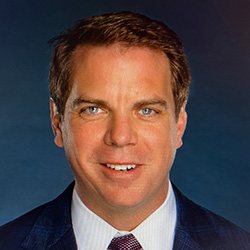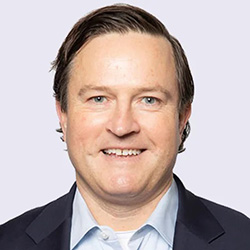Much of biotech is unprofitable – and many companies will struggle to raise funds in a tough market over the next couple of years, says Tycho Peterson. Fortunately, his company acted to get ahead of the curve.
Raise funds before they’re needed
On joining Adaptive Biotechnologies as CFO a year ago, Peterson’s priority was to shore up the balance sheet. His approach to raising capital is to “do it when you don’t need it, from a position of strength”.
Adaptive’s chosen route was a $250m royalty financing deal signed with healthcare investment firm OrbiMed. A relatively common path in therapeutics, this is still fairly unusual in the diagnostics market.
“We looked at equity, but we decided it was too dilutive at these levels,” Peterson explains. “We looked at debt; we didn’t like the idea that there would be big interest payments down the road when we were trying to reinvest in the business. And that’s why we settled on a royalty deal.”
Combined with an efficiency drive, he believes the deal will deliver Adaptive to EBITDA profitability in 2025.
Multiple development strands
Adaptive aims to harness the genetics of the human immune system for both diagnostic and therapeutic purposes.
Around half the company’s business is in blood cancer testing. With large barriers to entry in the space, Adaptive enjoys a virtual monopoly, says Peterson. “That’s a market where we’re only about 5% penetrated, so there’s a long runway to go,” he adds.
On the therapeutic side, Adaptive is in partnership with Genentech on a T-cell therapy in oncology. An investigational new drug application was recently accepted by the FDA. The stakes are high: “If the personalized product works, we’ve effectively cured cancer,” Peterson declares.
Other development includes work on diagnosis and treatment for conditions such as multiple sclerosis, irritable bowel disease, and Chron’s Disease. “These are largely unmet needs in the market – you don’t have targeted therapies,” Peterson points out.
Harnessing AI for efficiency
The business benefits from extensive partnerships, including a minimal residual disease pharma business with $400m in milestone payments.
It also has a partnership with Microsoft, which is enabling it to deploy artificial intelligence to support its mapping of the immune system.
AI has multiple potential applications in other aspects of the business, says Peterson. “We’re now looking at incorporating AI and ChatGPT into our day-to-day efforts, whether it’s pre-authorization ahead of ordering tests, or working with payers if they’re denying claims. On the finance team we’re looking at it as we go to renegotiate our insurance policies.”
Consolidation set to pick up pace
Peterson consels potential investors in the biotech market to look for opportunities targeting large market opportunities and unmet clinical need, rather than “follow-on, me-too drugs”.
“Ultimately, you want a therapeutic pipeline that is going to be differentiated, that is going to have an unmet need, and a well-capitalized company and good management team to support that development path,” he says. “But it is a long-term investment philosophy, maybe more so than other sectors.”
He accepts that the onus on the industry to show it can achieve profitability while lowering drug costs. In the meantime, he sees signs of a pick-up in M&A activity, including Pfizer’s recent acquisition of Adaptive’s Seattle neighbor, Seagen.
“Large cap companies are sitting on almost all-time high levels of cash right now, especially those that have COVID tailwinds,” he points out. “I think they’ve been watching the market. They’ve been waiting; they’ve been patient.”
Ultimately this could be good news for drug development and for patients, Peterson concludes: “What we’ve always found is good innovation gets funded, one way or another. Maybe it ends up in the hands of big pharma as opposed to small biotech, but it’ll get funded.”


